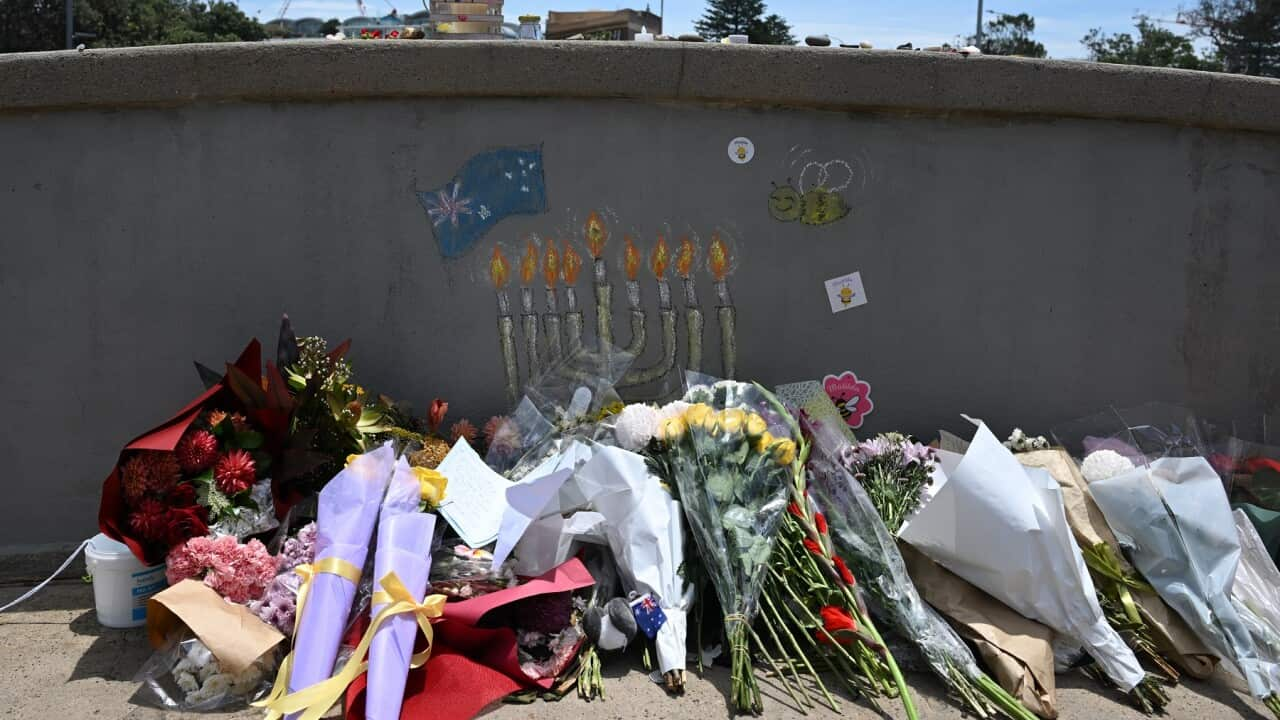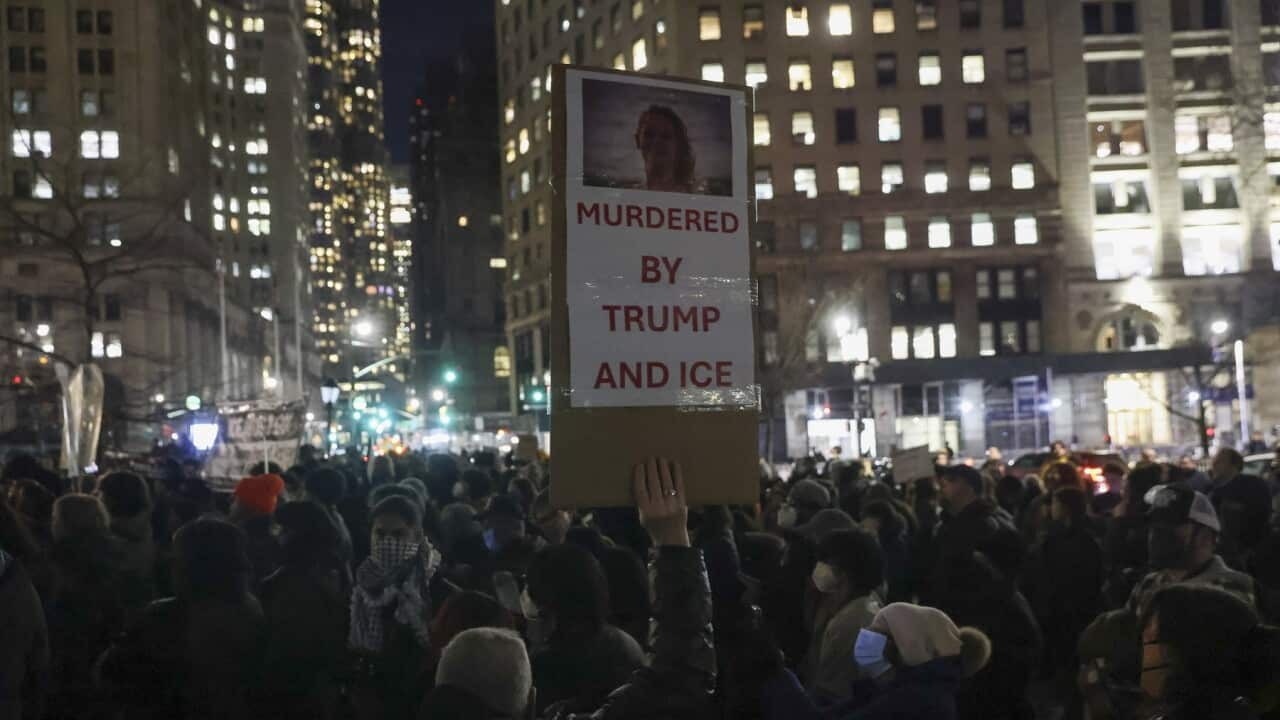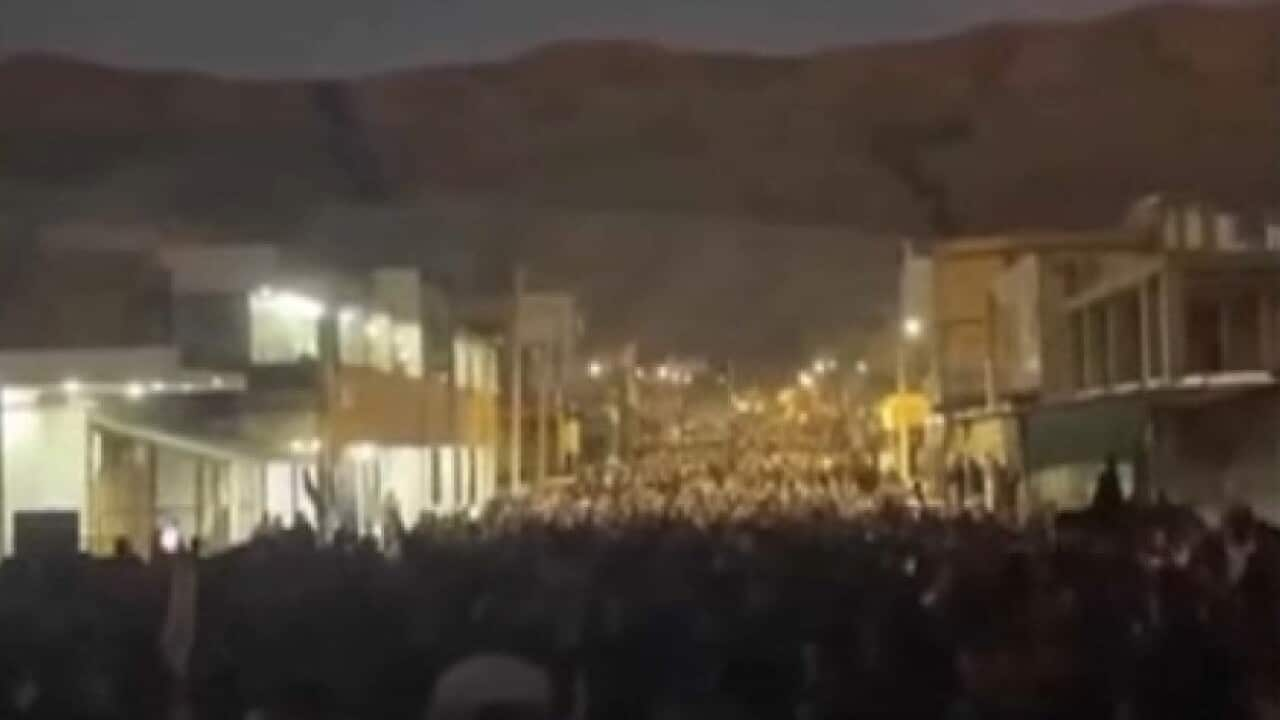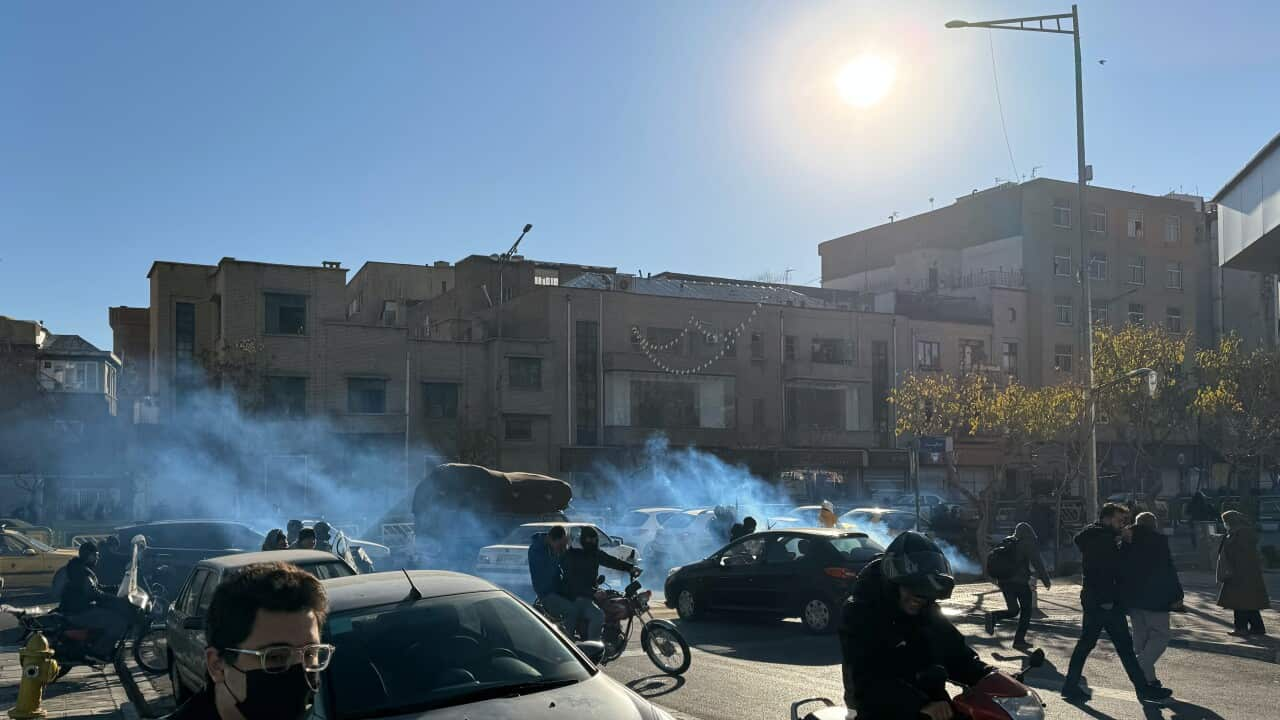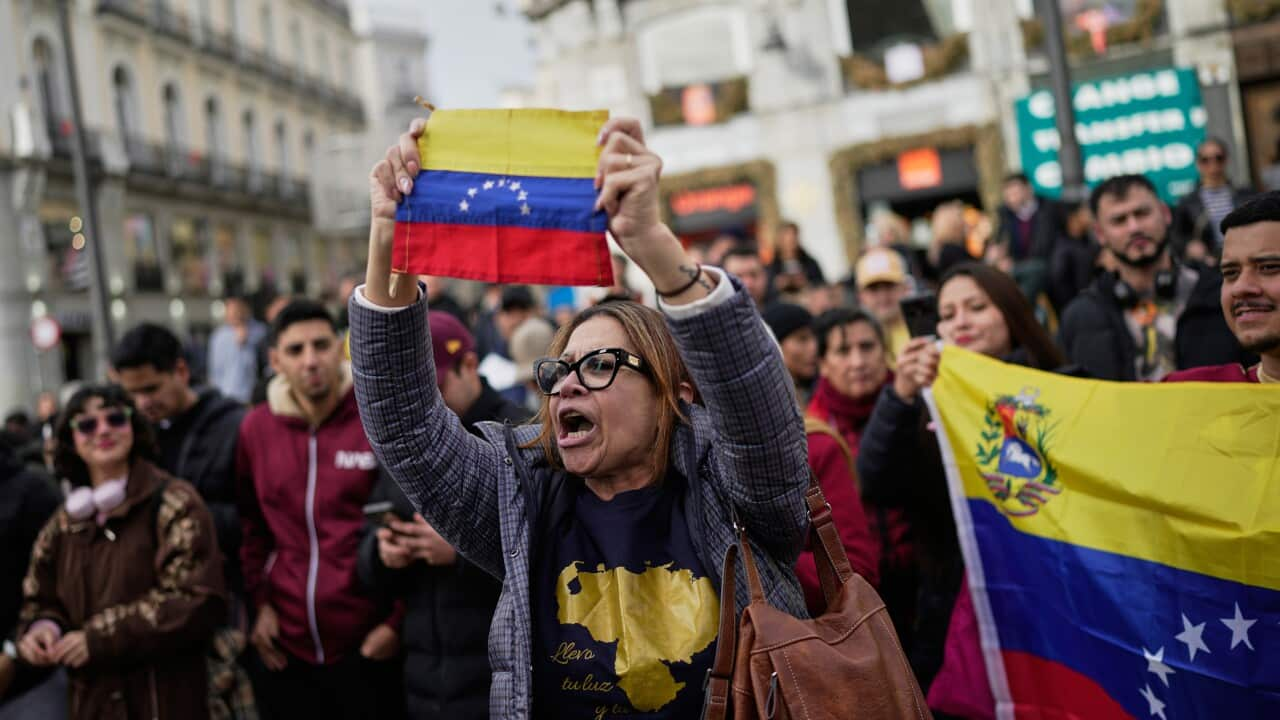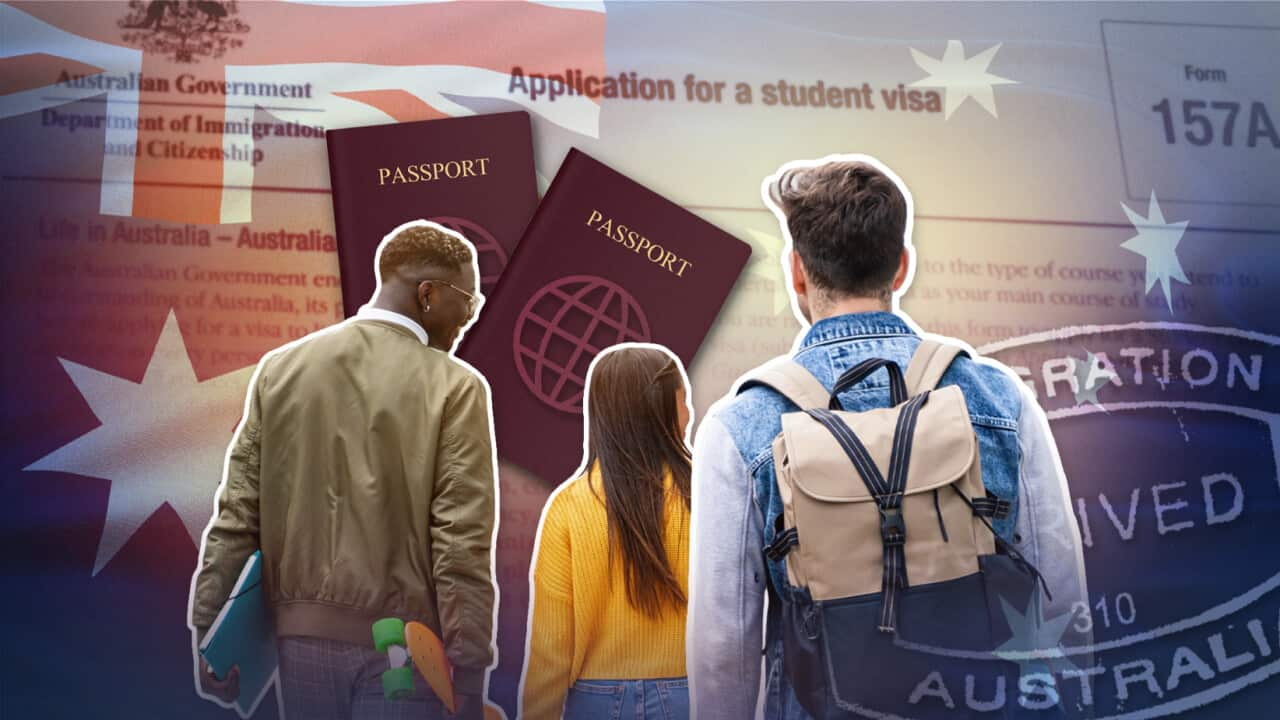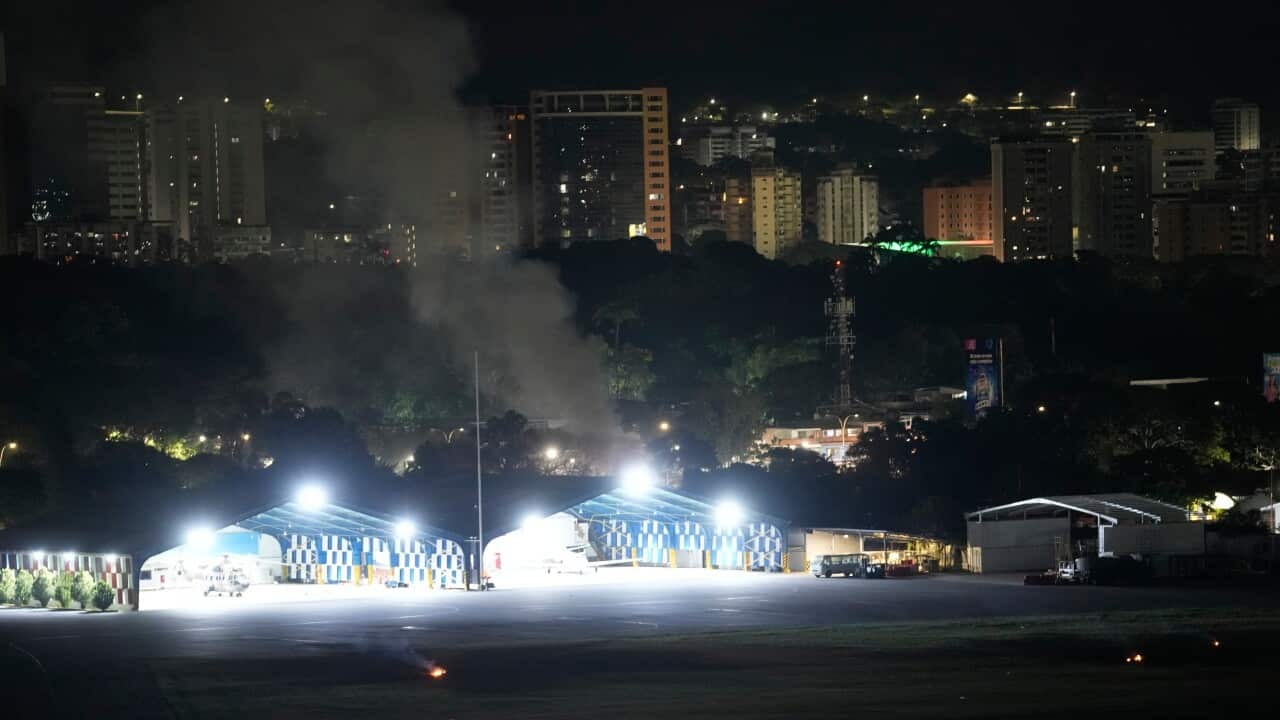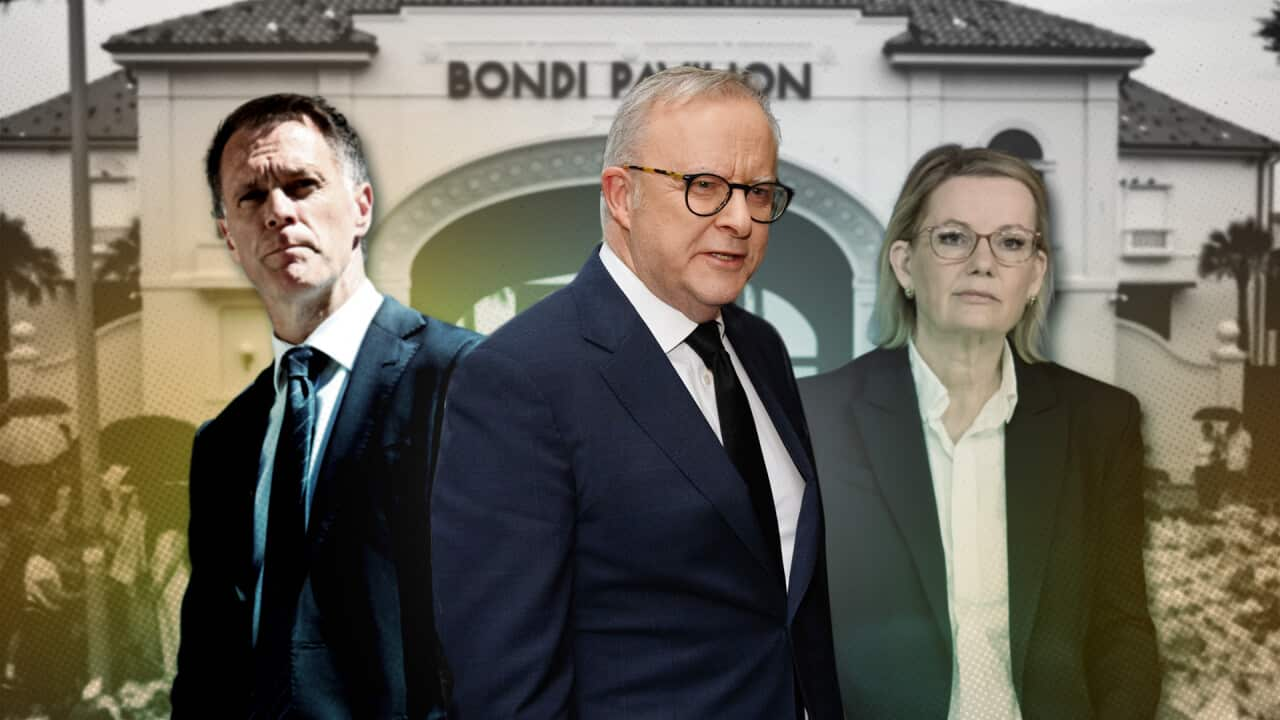TRANSCRIPT
Each year in north-east Arnhem Land since 1999, the Garma Festival brings together thousands of people including Yolŋu leaders, families, cultural custodians and guests from across Australia and the world for four days of cultural learning.
This year, Indigenous peoples from North America, including members of the Navajo, and Lakota nations also attended the festival.
Francesca Rianna Semoso, a Member of Parliament representing North Bougainville in Papua New Guinea, was also among the overseas visitors at the festival.
She says she has taken notes from this year's event.
"For us as a new nation that we're pledging on becoming an independent Bougainville. I think for us, we've got a lot to learn. Having to participate in this (event), gives me an oversight on what do I do for my own country in Bougainville. And what do I do to ensure that it is also targeting the next generation. And making sure our culture is to do with the land - our land, the languages."
The festival also serves as a platform for policy discussion and leadership with difficult issues on the table.
In his speech the Prime Minister praised the work of the Victorian Indigenous truth telling process, the Yoorrook Justice Commission.The Victorian inquiry was the first of its kind in Australia.But the Prime Minister stopped short of committing to any Federal commission of inquiry.The Northern Territory's youth detention system was also under the spotlight at Garma.
"This genocide must stop. We are asking you Prime Minister, we are asking you to do something about it."
That's Uncle Ned Hargraves, a Warlpiri elder who spoke to NITV.
He travelled hundreds of kilometres from Yuendumu [[newn-deh-Moo]] to meet the Prime Minister Anthony Albanese with his message.
A meeting that wasn't to be after the Prime Minister had to leave the festival early due to illness.
Uncle Hargraves was hoping to appeal to the Prime Minister to prevent the Northern Territory from continuing with justice measures designed to crack down on youth crime.
The federal government has resisted calls to intervene, and the territory government has defended its approach as focused on victims of crime.
"They are using their power to destroy us, to take away our rights."
Uncle Hargraves has seen the impact of a justice system first hand.
His impassioned plea was driven by the increasingly tougher youth justice measures in the Northern Territory.
And it's also a deeply personal issue for the elder. Two of his grandsons have passed away in the Northern Territory justice system, one in May this year.
This is his message for the Northern Territory government."We are not animals or savages. No, we're not. We want to live in freedom. We want to live with our children, with our generations to come, and to live safe. So right now, we're living in fear. All our children are living in fear."
Katie Kiss is the Aboriginal and Torres Strait Islander social justice commissioner.
"We are very concerned about the fact that a lot of these laws breach human rights principles and standards that Australia has signed up to."
The Northern Territory government had recently passed legislation to remove detention as a last resort and reinstate the use of spithoods.
Opposition leader Sussan Ley told SBS World News that until someone becomes a victim of crime, they won't really understand that radical interventions are sometimes needed.
Both these measures were explicitly condemned in the 2017 Royal Commission into the Protection and Detention of Children in the Northern Territory.
Jeswynn Yogaratnam is the Northern Territory Anti-Discrimination Commissioner.
"Have some compassion, we are talking about children here and we are talking about community safety that should also include them as part of the equation."
In a statement posted to social media ahead of the legislation being passed, the Northern Territory Chief Minister took aim at critics.
Lia Finocchiaro says they make no apologies for replacing the former government's broken system, calling those opposed "offender apologists".
Matthew Ryan is the Northern Land Council Chairman.
"She's gone too far in the cabinet. Gone too far. Not enough listening, not enough engaging. The Chief Minister of the today is out of touch, should engage and consult more and it's appalling. We should be consulted properly."
The Garma Festival attracts thousands of people each year from Australia and overseas.
The local Yolngu culture is front and centre, with art, music, and bunggul or ceremonial dance all showcased during the four-day festival.
The protest push for Treaty that acclaimed band Yothu Yindi spearheaded in a song called "Treaty" is still celebrated, but a treaty remains an ambition not yet met.
The song was composed by the Australian musical group made up of Aboriginal and balanda or non-Aboriginal members.
Witiyana Marika, an Australian musician and co-founder of the Yothu Yindi band spoke to SBS Chinese about the importance of the festival.
"Well, it is very important for the non-Indigenous people to come and see and receive that special knowledge and exchange their culture with the Yolŋu culture. Multicultural people that are coming in, exchanging their culture and receiving."
A delegation of Pacific politicians at the festival commented on policy realities.
Ratu Viliame Seruvakula is Fiji's Great Council of Chiefs chairman.
"I was surprised listening so some of the things that the indigenous leaders have talked about, we always thought because Australia is such a big country and the perception in small nations is everybody is fine."
Papua New Guinea's Bougainville Minister Geraldine Paul on the other hand was not surprised to hear about some of the issues facing Indigenous Australians.
"I'm not surprised because we face the same similarity as well too in Boganville - you know, targeting our youth and all that."
And as the festival ends for another year, this participant says the political discussions, sharing of culture and music are ultimately about creating a message of hope, for the next generation.
"Coming into Garma for sharing our culture to other people here, to Balanda and Yolgnu, we sharing our culture into Garma, and our music, because in the pain, we are singing about our land, totems, and my own people."


